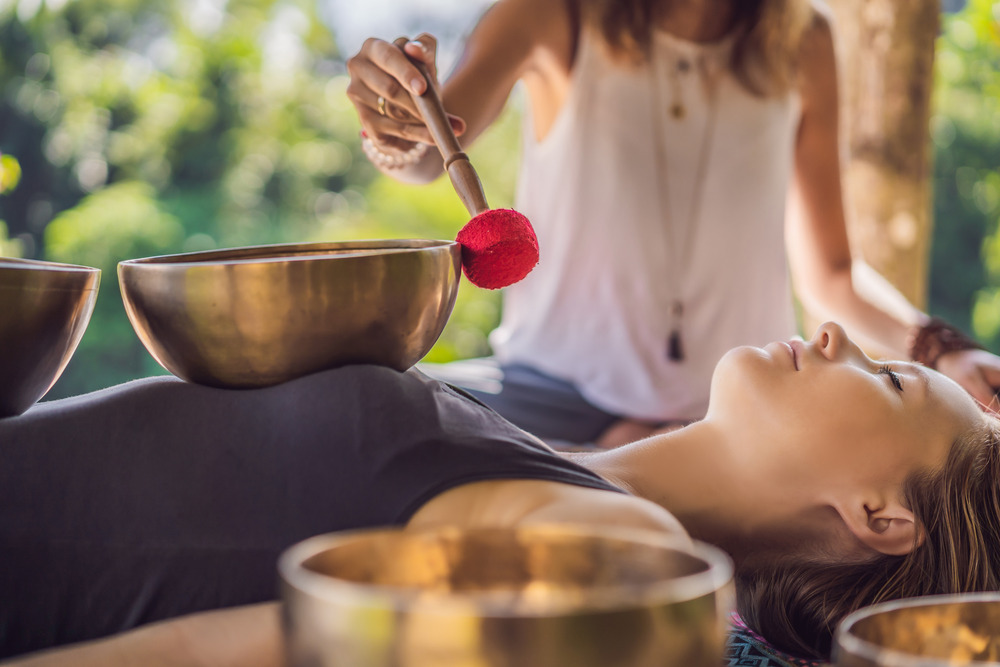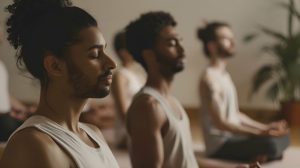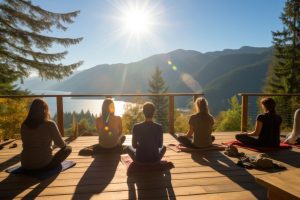Spiritual retreats are in right now. And why not? People are desperately searching for inner peace. They are trying to find meaning in a troubled world. Spiritual retreats can help in both regards. What so many don’t know is that there are different types of spiritual retreats. Figuring out which type is right for you isn’t necessarily easy.
What are spiritual retreats?
The place to start is understanding exactly what a spiritual retreat is. Spiritual retreats are intentional getaways designed around the idea of helping you address the spiritual side of your being. Remember that humans are three-part creatures. We have bodies, minds, and spirits.
A spiritual retreat focuses on the spiritual side of a person, similar to how a physical retreat focuses on the body. Giving intentional time to the spiritual side is key to finding inner peace. It is key to personal growth and self-improvement.
What happens at spiritual retreats?
The next thing to know is what happens at spiritual retreats. Each retreat has goals and objectives. As such, a variety of therapies and methodologies are utilized. Here at Maloca Sound, one of our specialties is sound meditation and healing. It is a big part of any retreat we sponsor.
In a typical sound bath session, musicians utilize a variety of instruments to create sounds with vibrations known to have healing properties. Participants gather to be bathed in sound. They are encouraged to meditate as they listen.
Sound baths are just one example of a spiritual retreat activity. Whether it is music therapy, a traditional cacao ceremony, or even yoga sessions, the goal is to set the container and hold space for you get in touch with your inner teacher and healer, while soaking up the healing power of sound vibrations.
What are the different kinds of retreats?
In choosing the type of spiritual retreat that is right for you, it’s helpful to know what types are available. Here are just a few examples of the kinds of retreats you could consider:
- Personal Retreats – A personal retreat is all about self-care, personal growth, and self-improvement. Activities are designed around concepts like forgiveness and personal empowerment, self love and listening to the inner voice and personal guides.
- Couples’ Retreats – Couples’ retreats can be for both married and unmarried partners. The main goal of a couples’ retreat is to strengthen the relationship between partners through a journey of self-discovery and greater awareness of each other, both individually and as partners.
- Spiritual Healing Retreats – Spiritual healing retreats are designed around the concept of personal growth by dealing with past issues / inner child work, current challenges, and future vision and dreams people want to fulfil. These retreats help people make sense of past, present, and future, in a loving and safe container, supported by faciliatators and guides, as well as the group aspect.
There are many kinds of retreats to choose from. It all boils down to your goals. Why are you considering a spiritual retreat? What do you want to accomplish by taking the time away? Remember that your goals are just as important as retreat activities.
Where are spiritual retreats held?
Finally, consider where spiritual retreats are held. You’ll want to choose an environment that is conducive to your goals. You will also want a location you will find comfortable so that you can relax and get into your journey. The one exception here is intentionally choosing an uncomfortable environment in order to stretch yourself; as they say, growth begins at the edge of your comfort zone. So, maybe the best choice would be a setting that is challenging, yet safe. With workshops and activities that push the limits, but also, being held by guides who can assist you on your journey, and provide protection and insights.
We have given you a lot to think about. Truth be told, there are many types of spiritual retreats you might find helpful. Do some research and then try one. Take what you learn from that first retreat and apply it to choosing the next one. Then continue the process in an ongoing journey of spiritual self-improvement.





